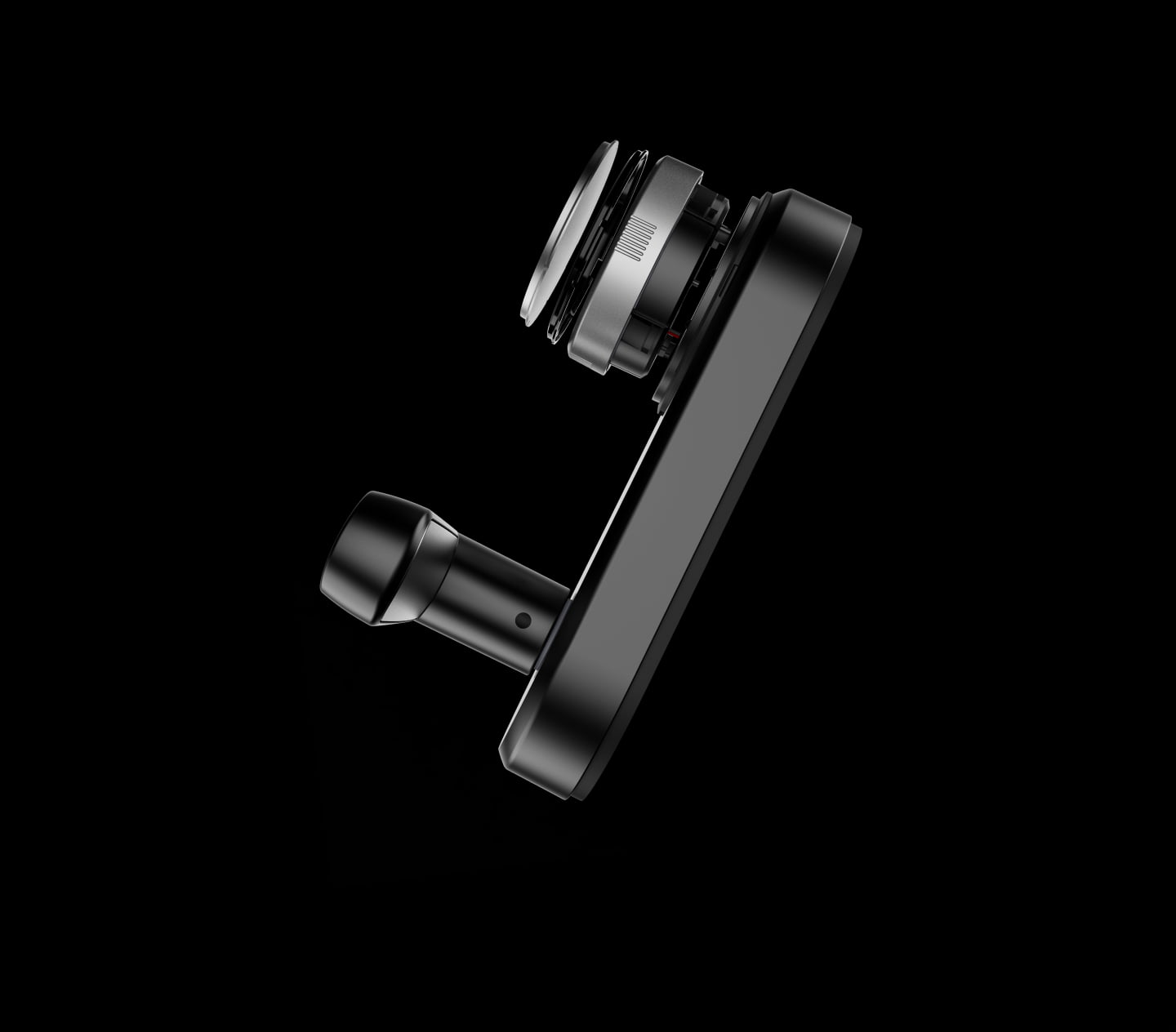As smart locks gain popularity everywhere from 2,000-room hotels to private residences, there’s a growing concern that they aren’t as secure as they need to be. The general consensus is: If security cameras, video recorders, baby monitors, and other IoT devices are vulnerable to hacks, what makes smart locks safe?
It’s a valid question, but should it keep you up at night?
Sure, it might be unnerving to think that the device designed to protect your property and your wellbeing is only as safe as your WiFi password. Judging smart locks based on that fear alone, however, discounts the technology that supports smart locks and the advances lock manufacturers have made over the past decade.
So, let’s get a grip and take a close look at smart locks – where they came from, how they’ve evolved, and how secure they really are.
What is a Smart Lock?
A smart lock is any lock which is controlled remotely. Usually, this means through an app on your phone, but many smart locks will also work with verbal recognition devices, such as smart speakers and home assistants.
The lock either replaces the existing deadbolt or supplements it. They connect to operating devices (smartphone app or fob) via Bluetooth, Wi-Fi, or Z-Wave. They are powered by battery packs containing either standard alkaline or rechargeable batteries. Installing a smart lock is fairly straightforward, relative to installing any type of door lock.
Engaging your smart lock varies with different brands. Some smart locks also allow you to use codes, biometrics, or digital keys. A few will also take a traditional metal key.

Evolution of Smart Locks Safety
Modern smart locks are a natural offshoot of the electronic deadbolt/latch design, introduced by hotels as a security measure about 20 years ago. Like its predecessor, the modern smart lock provided the convenience of keyless entry and the piece of mind that if keys were lost, you could still get into your house, apartment, or hotel room – instant selling point in a convenience-hungry society.
Early smart locks were pin/pad designs, which had the security flaw of just a single passcode, often only four digits, to trip the lock. Over time though, smart locks have become…smarter.
What raises a smart lock’s IQ? The use of Bluetooth rather than Wi-Fi (or Z-Wave) helps, as it means your lock is not “talking” directly to your internet router, a prime target for hackers. Also, smart lock manufacturers are an ever-present instructor in teaching their products how to plug security holes. Smart lock firmware is constantly evolving and most locks can now be updated remotely, allowing security patches to be implemented with a quick download.
Realistically though, wireless means that smart locks are more attractive to hackers. In some cases, depending on the smart lock design, criminals can use voice commands to unlock your door from the outside. Defending against this requires a device called an audio transducer, so it’s important that you research the various smart lock designs on the market to make sure you don’t need any peripheral devices to keep you safe.
What Security Concerns Are Real?
The fact is that smart locks can sometimes be hacked, but the risk is generally lower than a thief finding a spare key hidden under a doormat. Hacking a smart lock requires planning and tools. The idea that your smart lock is simply open to everyone is, thankfully, outdated. That said, there are steps you need to take to ensure that your smart locks are safe.
First of all, make sure to choose a system that uses some form of multi-factor authentication, especially for protecting main entrances. For hotels, of course, this has to be balanced with convenience.
Make sure that any system that sends out keys uses some kind of encryption to ensure that the connection between the phone, the lock, and your server cannot be intercepted. Also watch for the following:
- Change any and all default passwords and administrator usernames
- Always buy from a reputable smart lock company and make sure the lock you choose is optimized for the purpose you intend it for
- Keep all software and related applications up-to-date
- Make sure that the hardware of the smart lock is not inferior; smart locks should provide the same physical security and resistance as traditional locks
Also be aware that smart locks can sometimes fail closed, denying somebody access until they are reconfigured. If possible, make it easy for authorized administrators to reset the lock.
Are Smart Locks Even Safe?
Are smart locks more secure than traditional locks? Depends. There are certain circumstances, however, in which smart locks can improve security, provided they comply with your lifestyle or business.
Here are some of the ways smart locks can keep your customers or your home safer:
- The door will lock automatically every time the person goes through it – true of traditional hotel room doors but maybe not so much for an Airbnb
- Keys cannot be lost or locked in – keys are more likely to be misplaced than a smartphone with a smart lock app
- You can pre-program to allow digital access only on certain days or at certain times – when a guest checks out, the digital key automatically expires
- Opening and closing the door takes less time, reducing the risk of being followed into a building or hotel room
- No more hiding a spare key or worrying about losing your keys – and you don’t need to replace your locks if a key is lost
All of these give smart locks a security advantage which, combined with the increased convenience, makes them a good choice for many properties. The upside to smart locks generally outweighs the minimal risk of locks being hacked.

What Else Should You Consider?
The first thing to consider is whether to get a lock which replaces or adds on to your existing deadbolt. The age of your lock is a consideration here. If you have a rusting deadbolt, then it might be best to replace it. If so, make sure that the deadbolt is up to the standards you need it to be.
Make sure that your deadbolt moves smoothly. If you have a door that needs to be shoved or jiggled before the lock will slide into place, then you should repair or rehang the door before installing a smart lock. The mechanism will not be able to lock the door properly and may fail either open or shut.
One last thing that is easily forgotten, be aware of the battery life on your smart locks. If you forget to change the batteries, the lock can fail and then you’re locked out and unable to change the dead batteries that got you there. A real predicament.
Overall, modern smart locks are not major security concerns, especially for situations such as hotels, but modern designs make them practical for Airbnb’s as well. In fact, their flexibility and the lack of physical keys results in certain security advantages that your guests will appreciate.
Smart lock systems like ours are ideal for controlling access in a flexible, convenient, and secure manner. To find out more and get a quote, click the button!




Join the discussion 3 Comments